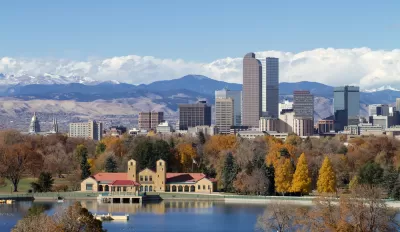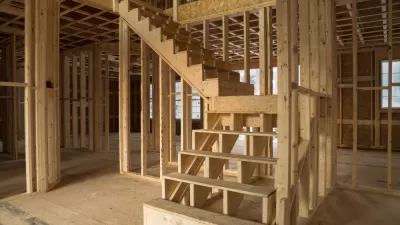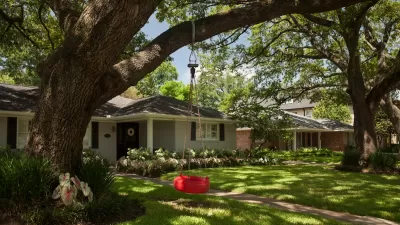The Elevation Community Land Trust's unusual ownership structure and strong initial fundraising have given it a solid footing in the Denver area.

Oscar Perry Abello assesses the impact of a unique community land trust helping Denver families get into affordable homes. As Elevation Community Land Trust public partnerships and legal director Tiana Patterson explains, the trust's split ownership structure "is what makes it possible for the land trust to keep the cost of homeownership affordable for you and for the next buyer after you." To qualify for an Elevation home, "your current household income can only be up to a certain amount — up to 80% of area median income, or $78,500 for a household of four in Denver. More importantly, the trust keeps the deed to the land, while extending a 99-year ground lease to you as the owner of the home or a housing unit on that land."
Through this model, "[t]he land trust has sold more than 60 homes since inception in 2017. Elevation Community Land Trust’s goal is to acquire or develop and sell 1,000 homes in Colorado by 2027." David Ogunsanya, vice president of real estate for the land trust, says "[t]he need is great, so we can’t just focus on one thing. There are families that might need a condo just to start out. There are families where a town home might be perfect for them until they move to something else. Some people need single family homes."
Most CLTs focus on housing, with around 20,000 rentals and 15,000 homes represented in the U.S. today. The community land trust model, which dates back to 1969 in Albany, Georgia, "was started by Black civil rights leaders in the 1960s as a direct result of being shut out of the traditional real estate market." Land trusts frequently work with local public agencies to acquire parcels and receive grants. "Unlike most other community land trusts, Elevation Community Land Trust hasn’t had to worry too much about initial funding. It started out in 2017 with $24 million in seed funding from a coalition of local funders, including the Colorado Health Foundation, the Denver Foundation, Bohemian Foundation, and Gary Community Investments, which also served as the incubator for the land trust." Elevation hopes to become self-sufficient once their portfolio reaches 1,000 homes, with each homeowner contributing a $100 monthly fee to the land trust.
FULL STORY: An Unusual Community Land Trust in Colorado Is Making Its Mark

Alabama: Trump Terminates Settlements for Black Communities Harmed By Raw Sewage
Trump deemed the landmark civil rights agreement “illegal DEI and environmental justice policy.”

Study: Maui’s Plan to Convert Vacation Rentals to Long-Term Housing Could Cause Nearly $1 Billion Economic Loss
The plan would reduce visitor accommodation by 25% resulting in 1,900 jobs lost.

Planetizen Federal Action Tracker
A weekly monitor of how Trump’s orders and actions are impacting planners and planning in America.

DC Extends Application Window for Outdoor Dining Permits
District restaurants will have until the end of November to apply, but businesses with permits in rush hour parking lanes must end operations on July 31.

Wind Energy on the Rise Despite Federal Policy Reversal
The Trump administration is revoking federal support for renewable energy, but demand for new projects continues unabated.

Passengers Flock to Caltrain After Electrification
The new electric trains are running faster and more reliably, leading to strong ridership growth on the Bay Area rail system.
Urban Design for Planners 1: Software Tools
This six-course series explores essential urban design concepts using open source software and equips planners with the tools they need to participate fully in the urban design process.
Planning for Universal Design
Learn the tools for implementing Universal Design in planning regulations.
Caltrans
Smith Gee Studio
Institute for Housing and Urban Development Studies (IHS)
City of Grandview
Harvard GSD Executive Education
Toledo-Lucas County Plan Commissions
Salt Lake City
NYU Wagner Graduate School of Public Service





























